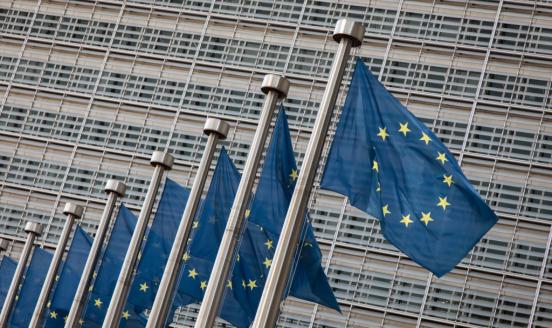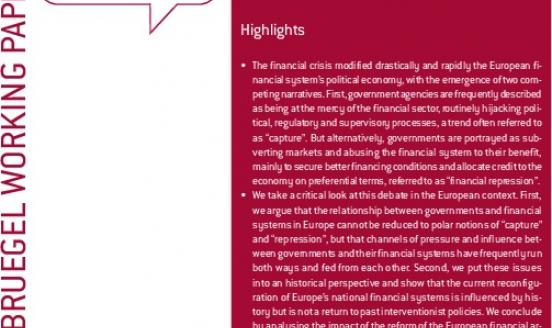The Weekender: From the Spanish program to the banking union - Riga to Athens with love
Dear All, It has been a busy week with conference calls by G7 Minfins and eventually the eurogroup to hammer out an agreement for a Spain program. T
Dear All,
It has been a busy week with conference calls by G7 Minfins and eventually the eurogroup to hammer out an agreement for a Spain program. The release of the FSAP on Spain by the IMF on Friday somewhat conflicted with views of the Europeans (and in particular of the EFSF) suggesting that recapitalization needs would be greater than the 50bn announced. Europeans were already discussing then a larger package that would be more consistent with current market expectations. The ability to achieve a relatively high number has therefore created a largely positive surprise but although this is quite positive, the real questions remain unanswered.
This week I will focus on:
1. From the Spanish program to the banking union
2. Riga to Athens with love
From the Spanish program to the banking union
Some key questions of this program remain unaddressed in the statement of the eurogroup as well as in the guidelines for recapitalization of financial institutions. In particular, there is no detailed explanation yet of the intrusiveness of policy conditionality related to the banking sector and the degree to which the ECB/Commission/EBA can really influence this process.
The press conference by PM Rajoy suggests that Spain accepts only very limited involvement and that the Spanish government will really be designing and taking control of the restructuring process with all the shortcomings of this modus operandi.
Hence, if we are slowing pulling together the elements of a banking union, it is probably premature to see in the Spanish program as it stands the real embryo of a resolution authority. The EFSF/Commission will really be monitoring what the Spanish authorities are deciding but the executive authority and political responsibility still very much sits with Spain.
It will probably be easier to read through the bargaining powers and room for maneuver of the various stakeholders once the Memorandum of Understanding is made public but at the moment, on the surface, it still seems far from being sufficiently intrusive.
This sits well with an absence of a priori acceptance for burden sharing of the losses related to this exercise and one could therefore expect primary market conditions to remain relatively tensed for Spain going forward.
This finally begs the question of the role of the IMF in this new construct. Arguably, it has limited expertise in banking sector restructuring but its arms-length involvement brings deeper questions about the consistency of the IMF’s presence in European programs. Indeed, if Ireland was also a banking crisis, it is unclear why the IMF played such a dominant role in designing the program there and such a limited role in Spain?
Riga to Athens with love
In fact, this question of the relations between the IMF and Europe was the background of an important conference that took place in Riga this week and that largely celebrated the Latvian adjustment efforts but also largely failed to take the important lessons from this episode for the future relations of the IMF with Europe and more broadly for the interconnection between regional and international safety nets arrangements.
It was a good opportunity to remember (although it was never spelled out in so many words during the proceedings) how the IMF and Europeans diverged so fundamentally in their assessment of the situation and on the chance of success of an internal devaluation in the Baltics. The history will remember (although this is poorly documented) how the IMF wanted to push for an abandon of the peg and a large devaluation and technically suspended the program and let the European Commission disburse on its own.
What is more concerning is that beyond economic arguments about why Latvia succeeded where others failed (size and openness of the economy, political and social endorsement for fiscal consolidation, friendly foreign banks), there was no real debate about how the disagreements between the EU and the IMF has been handled and should be managed. This is even more disappointing considering those disagreements have subsequently been a constant of all programs in Europe, in Greece regarding the need for a PSI (where this time the IMF was right), in Ireland on the haircut of senior and subordinated bank creditor…
The main conclusion of this exercise is that both the IMF and the EU seem to realize the inconsistent and largely ad hoc framework of their joint engagement but seem incapable of fixing it right now. This is a source of important risks and potential gaps in the safety net architecture or in their ability to deliver the goods.
There needs to be a serious and profound discussion about a new, clear, predictable way of enhancing the governance and the cooperation between regional and international safety net arrangements. This discussion would certainly have important implications both for the design of regional safety nets (in Europe where they are constantly evolving and in other parts of the world where they are more embryonic) as well as for the IMF who could possibly adapt its articles of agreement to include the possibility of lending to a regional arrangement.
These issues should be on the agenda of the Los Cabos G20 but they are not. Yet it seems that the elements of a deal between the BRICs and the IMF are coming together to allow an increase in resources despite the very slow ratification of the 2010 quota reform by the US. IMF commitments and bilateral negotiations between China and the US seem to have lifted some opposition to a rapid Chinese contribution.
Best Regards,
Shahin Vallee


